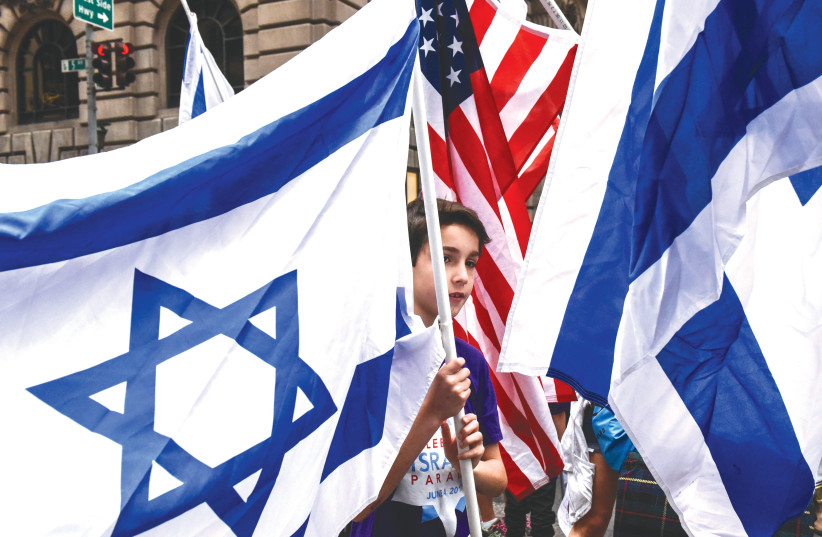There are those born into the tribe who are Jewish in name only. For them, being a Jew is something that doesn’t have any effect on their lives. It doesn’t affect their choice of partner, where they live, or anything else, for that matter. The fact of being Jewish is of no moment for them whatsoever; it is purely incidental.
This all changed for a significant number of Jews-in-name-only on October 7. The Jewish spark, otherwise known in Yiddish as pintele Yid, which had lain dormant, was ignited in many by the events of that day, growing steadily brighter as the days, weeks, and months have passed. No longer could they ignore their heritage or remain silent in the face of this modern-day atrocity.
For Mancunian Joshua Ben Joseph, who had been “totally estranged from the Jewish community for years,” October 7 was a turning point, causing him to reach out to some of his old Jewish school friends: “Yes. I am sadder and wiser. I know who my friends are now,” he laments.
October 7 horrors reinvigorated pride in diaspora Jews
And he’s not alone. Since October 7, there’s been a renewed vigor among Diaspora Jews, not only in claiming but also in proudly displaying their Jewish identity, starting with wearing a Star of David necklace.
As Londoner Jonathan Glass told The Jewish Chronicle, “My Magen David, that I hadn’t worn for 40 years, is now back around my neck. It’s mainly a way of saying I don’t care how much you hate us, I’m proud to be Jewish, it’s central to who I am and I’m not going anywhere. The shorter version is: It’s a ‘f**k you.’”

British jewelry designer Talya Paskin has also seen a 600% increase in sales of her Star of David necklace along with other designers who report similar trends regarding their Jewish-themed jewelry.
Going one step further, many Jews are now voting with their feet by returning to synagogue, often for the first time in years. As reported by the The Jerusalem Post, a new survey, released by Chabad, suggests there has been a surge in synagogue attendance and Jewish programs among Jews in the United States, “as well as a heightened sense of Jewish pride, connection to Israel, and stronger Jewish identity among community members.”
British Jew Krystyna Shirley Rabin is one such person for whom the events of October 7 have strengthened her Jewish identity and connection to Israel. This renewed passion has even influenced her grandchildren who have become, “fired up and wanting to look to joining the IDF.”
As if to prove the point, the pro-Israel rallies in London and Washington saw the largest-ever gatherings in support of the Jewish State. While the demonstrations comprised mainly Jews, a significant number of non-Jews also attended.
This burgeoning support for Israel by Jews and non-Jews around the world with no prior connection to the country, may, in large part, be due to the internet.
The instantaneous sharing of information on platforms like Facebook, X, and Instagram has made it impossible to ignore what is happening in Israel, while online news and media outlets, like JPost, make it easy to access up-to-date information in real-time. It has also facilitated the war effort, both in Israel and the Diaspora, as shown by the extraordinary outpouring of support from all corners of the globe.
Billions of dollars have been raised to buy equipment and supplies for the soldiers, among other things, while thousands upon thousands have flocked to the country to volunteer wherever there’s a need.
There’s also talk of an increase in the number of people who intend to make aliyah once the war is over and the situation returns to a “new normal.”
While antisemitism – the societal scourge that has grown exponentially since October 7 – may be one of the driving factors behind this anticipated increase, another important factor is the yearning for a more meaningful existence.
Since the war began, life has taken on a new dimension and a deeper meaning, especially for those who live in the Jewish state. Everywhere you go, there are reminders of the war and the ongoing struggle and heartache we are all facing as a nation. Huge posters displaying the faces of the hostages or a simple Israeli flag with the war slogan, “Together we will win,” adorn advertising boards across the country. Even something as mundane as a trip to the supermarket can catch you unawares, as many of the products here have a small flag on the label with the slogan printed alongside it.
And then there are our wonderful soldiers. It’s impossible to go anywhere without seeing men and women of all ages in uniform, often carrying a gun.
As hard as it is to live in a country at war – with the sirens, the disruptions, the overwhelming sadness that runs through everything – I wouldn’t be anywhere else. And I’m not alone.
Supporting Israel and watching as events unfold from the sidelines is no longer sufficient for many. Being here, on the field of play is becoming increasingly important for a number of Jews who now intend to make Israel their home.
Those who chant “From the river to the sea,” hoping for the demise of this tiny country, will have a rather rude awakening.
Far from driving us out, the result of October 7 is that the State of Israel is now stronger than ever. A growing flicker of light and hope has emerged since then as Jews around the world ignite their inner spark.
The writer is a former lawyer from Manchester, England. She now lives in Israel, where she works at The Jerusalem Post.
